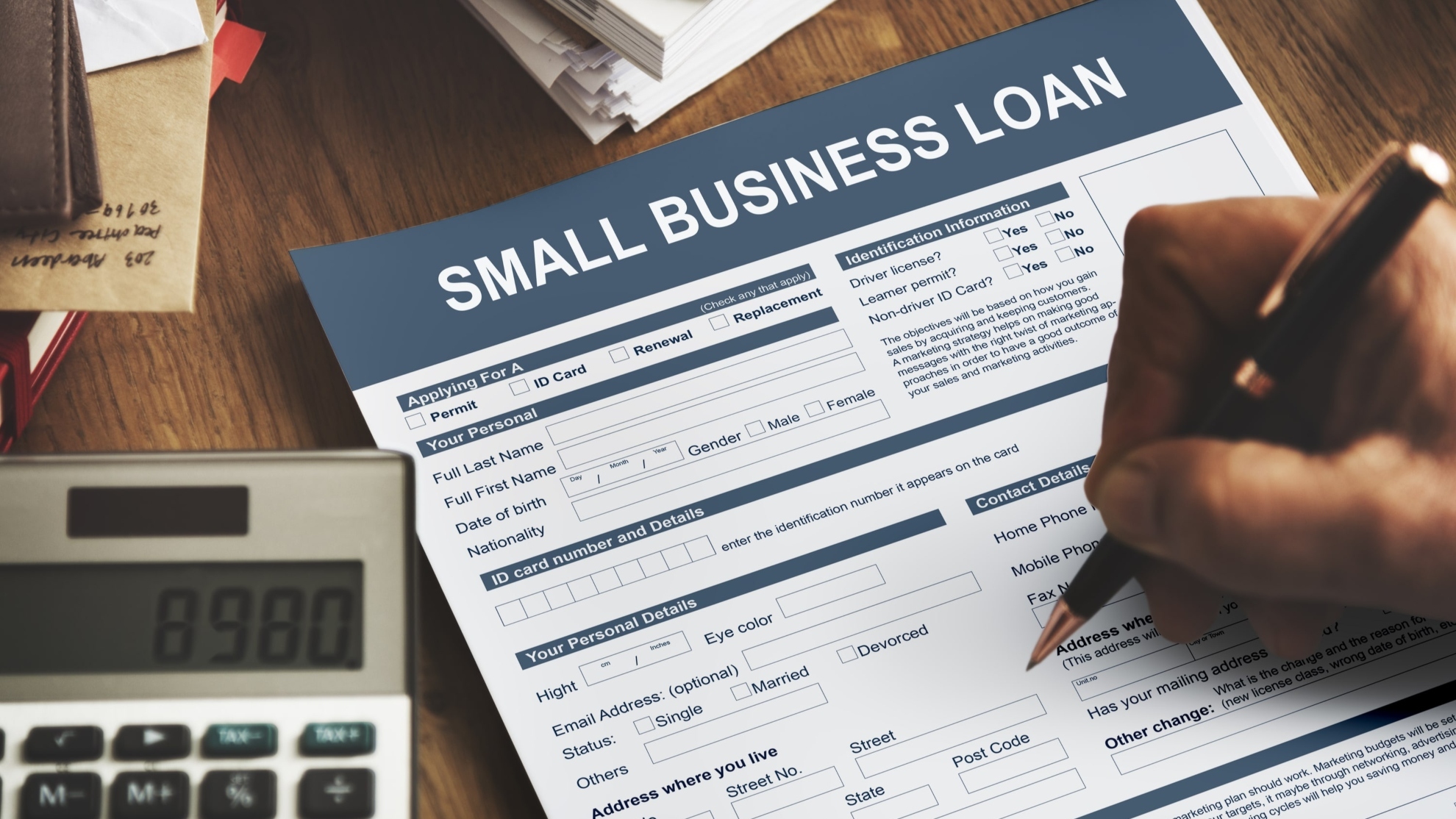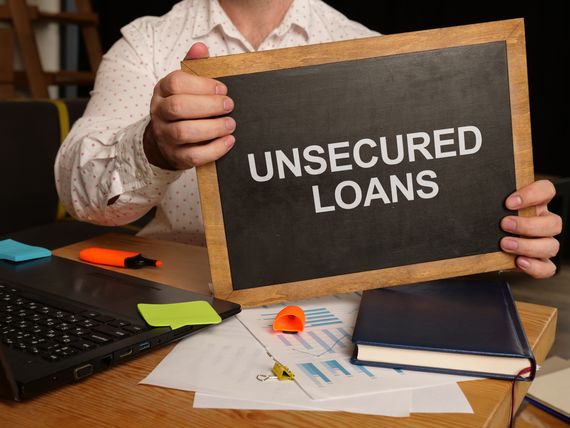
The Top 5 Small Business Loans You Need to Know About
Small Business Loans: You’re a small business owner looking to take things to the next level. Maybe you need funds to increase inventory, renovate your shop, buy new equipment, or even just make payroll when things get tight. Securing financing can be make-or-break for achieving your small biz dreams.
But where do you even start when searching for a small business loan? With so many options, terms, rates – it can get overwhelming pretty quickly. Well, take a deep breath and relax. We’ll walk through the top 5 small business loans and what makes each one a potential winner depending on your specific needs. By the end, you’ll have a short list to take to your accountant or advisor to review in more detail and select the best match for you.

What are Small Business Loans?
Small business loans provide financing for companies that may have trouble qualifying for traditional bank loans. There are many options out there for small business owners, from government-backed loans to alternative online lenders.
- SBA (Small Business Administration) loans are government-guaranteed loans offered through approved lenders like banks and credit unions. The most popular types are 7(a) loans and 504 loans. SBA loans typically have competitive rates and more flexible qualifications than a standard bank loan.
- Online loans are offered by alternative lenders like OnDeck, Kabbage, and PayPal Working Capital. These loans are easy to apply for and you can get approved quickly, often within a few days. However, interest rates tend to be higher than other options. Online loans are a good choice if you need fast, short-term financing.
To qualify for a small business loan, you’ll need good personal and business credit, annual revenue of at least $100,000, and 2+ years in business. The specific requirements vary between lenders but typically include:
- A solid business plan that shows your company’s potential for growth and profitability.
- Recent business tax returns, balance sheets, cash flow statements, and bank statements.
- Personal tax returns, bank statements, and financial statements for any owners with at least 20% stake in the business.
- Collateral like business equipment, real estate, vehicles or investments may also be required for some loans.
Small business loans provide essential funding to get your company off the ground, purchase new equipment, expand operations or cover operating expenses. With many options available, you can find a loan that suits your unique needs and qualifications. Do plenty of research, compare offers from different lenders, and make sure you understand all terms before signing any paperwork. If used responsibly, a small business loan could be a strategic move that allows your company to reach new heights.
READ ALSO: 9 Simple Steps to Refinance Your Student Loans
The Top 5 Small Business Loans
When your small business needs funding, here are the top 5 loan options to consider.
1. SBA Loans
The U.S. Small Business Administration (SBA) offers loan programs to help small businesses. The two most popular are the 7(a) and 504 loans. 7(a) loans provide working capital and can be used for purchasing equipment. 504 loans are for purchasing real estate and equipment. Both offer competitive interest rates and longer repayment terms.
2. Online Business Loans
If you need funding fast, an online small business loan may be a good choice. Companies like Kabbage, OnDeck and Lendio offer loans from $500 to $500,000 with quick turnaround. However, interest rates tend to be higher than SBA loans. Look for lenders offering rates under 36% to avoid predatory lenders.
3. Business Credit Cards
For very small funding needs, a business credit card may suffice. Many major credit card issuers offer cards for small businesses. Look for cards with 0% APR introductory offers, rewards and low fees. Just be sure to pay the balance in full each month to avoid interest charges.
4. Crowdfunding
For some businesses, especially creative ventures, crowdfunding sites like Kickstarter or Indiegogo are good options to raise money from many small contributions. You create a campaign to fund a specific project or business need and promote it to reach many potential backers. If successful, you receive the funds. However, there is a chance the campaign may not meet its goal.
5. Business Line of Credit
If you want an available source of funds you can tap when needed, a business line of credit acts like a credit card. You are approved for a certain amount and can draw on it as needed, paying interest only on the funds used. This provides flexibility for uncertain funding needs. Rates are usually lower than credit cards but higher than term loans.
Choosing the right small business loan option depends on your needs, qualifications, timing and risk tolerance. Do your research to find the best choice for your company’s situation. The perfect loan, like Goldilocks’ porridge, should be not too hot (risky), not too cold (limiting), but just right for your needs.
FAQs
So you’ve decided you want to apply for a small business loan, but you still have some questions. Here are some of the most frequently asked questions about small business loans:
What types of small business loans are available?
The most common types of small business loans are:
- Term loans: Provide a fixed amount of money that is repaid over a fixed period of time with interest. Great for equipment, real estate, or working capital.
- Lines of credit: Provide access to funds that you can draw from as needed. Interest is only charged on the amount you withdraw. Flexible option for variable expenses.
- Microloans: Small loans of typically $50,000 or less provided by nonprofits to help very small businesses get started. Often have flexible terms.
- SBA loans: Loans partially guaranteed by the SBA, like 7(a) and 504 loans. Offered through SBA-approved lenders with longer terms and lower down payments.
- Crowdfunding: Raising small amounts of money from a large number of people, often via the Internet. Rewards or equity-based. Flexible but volume of funders is uncertain.
How much will a small business loan cost me?
The cost of a small business loan will depend on several factors, including:
- The type of loan. Loans like lines of credit typically have lower interest rates than term loans. SBA loans usually have the lowest rates.
- Your credit score and financial health. The better your credit and financials, the lower your interest rate.
- The loan term. Shorter terms mean higher payments but lower total interest paid. Longer terms mean lower payments but higher total interest.
- Any fees charged. Common fees include origination fees, application fees, closing costs, etc. SBA loans limit the fees that can be charged.
- The lending institution. Rates and fees vary between banks, credit unions, micro lenders, alternative lenders, etc. Compare multiple options.
- Your collateral. Loans secured by collateral like real estate typically have lower rates than unsecured loans.
- Negotiation. Don’t be afraid to negotiate the best possible terms for your business. Come prepared with details on your business financials and growth prospects.




